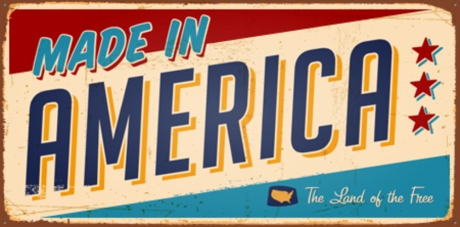
The world is a much smaller place than it used to be not so long ago. Thanks to the rapid development of modern communications people have an immediate access to all sorts of information from all around the world – digital media, eBooks, music, films. Just think about the worldwide reach the Hollywood industry has and how it spreads American colloquialisms and slang all over the globe!
Also, people are more likely to move to another English speaking country, mingle with others, use their local American English expressions and pass them onto others.
Basically what I want to say is that an awful lot of slang and phraseology traditionally classed as American is used in other English speaking countries.
It’s not as clear-cut as it was back in the day when people lived in closed communities and their spoken language didn’t have much of outside influence.
Nowadays you can’t draw a distinct line between American phraseology and the rest of the world simply because a lot of it is being used worldwide!
Here’s a list of just some of so-called American phrases and slang which is actually used in other parts of the world!
Take a backseat to – this idiom means that something is becoming less important and priority goes to a new person/task/anything for that matter. This idiom originates in America, but I’ve heard it used by one of my managers at work here in Ireland!
A no-brainer – do I really have to explain what it means? It really is a no-brainer! Apparently, this phrase was coined in America back in the 50ies or 60ies; now it’s used in all English speaking countries and you can rest assured any English speaker will understand what you mean by that.
The average Joe – if you’re going to tell me this phrase is used exclusively in the Sates, I’ll say – “Sorry buddy, you’re so out-of-touch!” It’s used everywhere, and while other countries may have equivalent expressions, this one is by far the most popular one.
How are you? – I found one website explaining that this phrase is part of American vernacular. They also said that it’s not really a question – people use it instead of ‘Hi!’ – and foreigners having migrated to the States find it hard to get their heads around such and similar phrases. Guess what? Same thing happened to me when I moved to Ireland which is an English speaking country! Believe me – ‘How are you?’ isn’t more American than ‘What’s your name?’!
Against all odds – apparently this is an American idiom, and I only found it out when flipping through an American phrase book. Prior to that I would have never thought ‘against all odds’ is an American expression because of its widespread use!
Chickens have come home to roost – this idiom is used to describe when someone is facing bad consequences of one’s actions. American phrase books will quote this idiom as theirs, British idiom lists will claim it’s originated in England. As far as I’m concerned, any native English speaker will understand the meaning of this idiom anyway, so why would I be bothered trying to decide where it comes from?
Bend over backwards – use can use this idiom when you describe a situation when you have to make real effort to get something done – usually following other people’s demands and whims. And you can rest assured that when you use this expression, you’ll be understood in Ireland, England and Australia as well. Contrary to some who list this phrase as an American idiom, I will definitely disagree with that!
Cough up – is a phrasal verb used, for example, when someone has to pay up an old debt. My Irish work colleague uses it every time when mentioning yet another debtor who’s paid off some of the debt in order to get a new delivery sent out to them. ‘To cough up’ is definitely not unique for Americans, but once again – many sources claim it is!
I could go on and on like this listing dozens upon dozens of phrases and idioms which have become part of the global English language, but I guess you’ve got the drift and I don’t need to keep doing that.
Needless to say, there are a lot of foreigners who are too concerned about this or that particular phrase and its usefulness in a particular English speaking society.
I’ve received a lot of e-mails asking questions about specific phrases and idioms and from what I could see those fellow foreigners were genuinely worried if they’ll be understood if they use a certain phrase outside the States.
The answer is quite simple indeed – the modern English language is more global that you may think! Yes, there are a lot of local expressions and slang, however, the most popular idioms and expressions have gone mainstream and you needn’t worry about them!
The Internet and TV have been contributing to this phenomenon big time, and if you asked for my opinion, I would tell you right upfront – “Don’t focus on differences between American and British English! On 99% of occasions you’ll be understood everywhere so you’d be much better off developing your overall fluency instead of being hung up about such insignificant matters!”
Thanks for reading,
Robby 😉


Comments on this entry are closed.